When events force people to migrate—whether from war or any other cause—what responsibility does the world have toward those migrants?
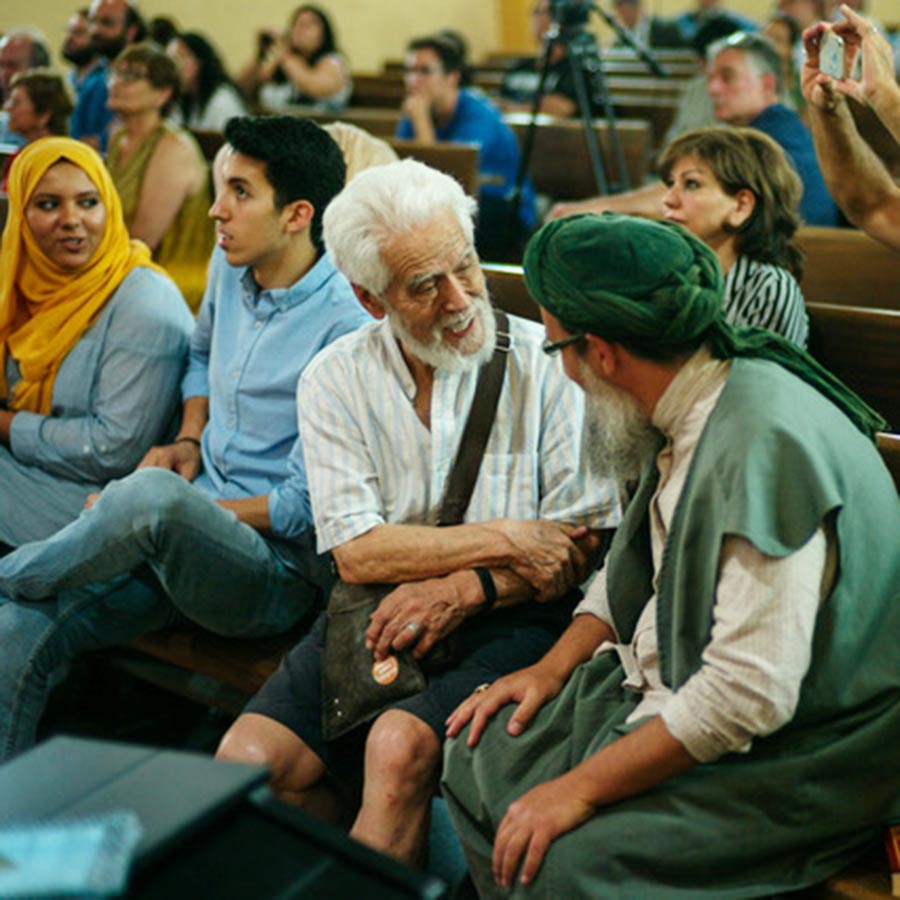
Some 300 representatives of religious communities and civil society organizations gathered for a conference at the Iglesia de Jesus Church in Madrid on 20 June 2017, the International Day for Refugees.
In a stirring display of solidarity and good will, some 300 representatives of religious communities and civil society organizations gathered for a conference in Madrid on that acutely-concerning issue—forced migration. The event was held at the Iglesia de Jesus Church in Madrid on 20 June 2017, the International Day for Refugees.
A poignant presentation by Reuters photographer Juan Medina captured the urgency of the refugee issue in Europe through a collection of his photographs and a video documenting the journey of refugees into Europe.
“It’s important to show these images, however shocking, time and again—as many times as necessary,” said Mr. Medina. “Some say you can become desensitized by so many pictures of suffering, and they will have less of an effect. I think it’s important to tell their story, and remember the sufferings of those who had to leave their country.”
“These photos show the harsh reality of what it means to be an immigrant. There is a sharp contrast between the exhausted refugees that are swept in by the shore, struggling to remain alive and locals strolling along the beach.”
In 2015, the Spanish government pledged to the European Union to receive over 17,000 refugees. To date, 1,200 have arrived, prompting a growing discussion in the country.
In recent years, the Baha’i community in Spain has recognized the necessity for a more substantial and profound dialogue on migration and the implications of having greater awareness of the issue. Its efforts have rested on the conviction that religion has a critical role to play in cultivating a common sense of humanity, as well as in mobilizing communities to contribute to social harmony and peace.
Together with a group of other civil society and faith-based organizations, the Baha’i community of Spain convened the recent conference, where diverse participants shared their experiences and renewed their commitment to take action in welcoming and supporting refugees. The event was also a forum through which participants sought to speak to the conscience of their people and kindle the light of compassion in Spanish society.
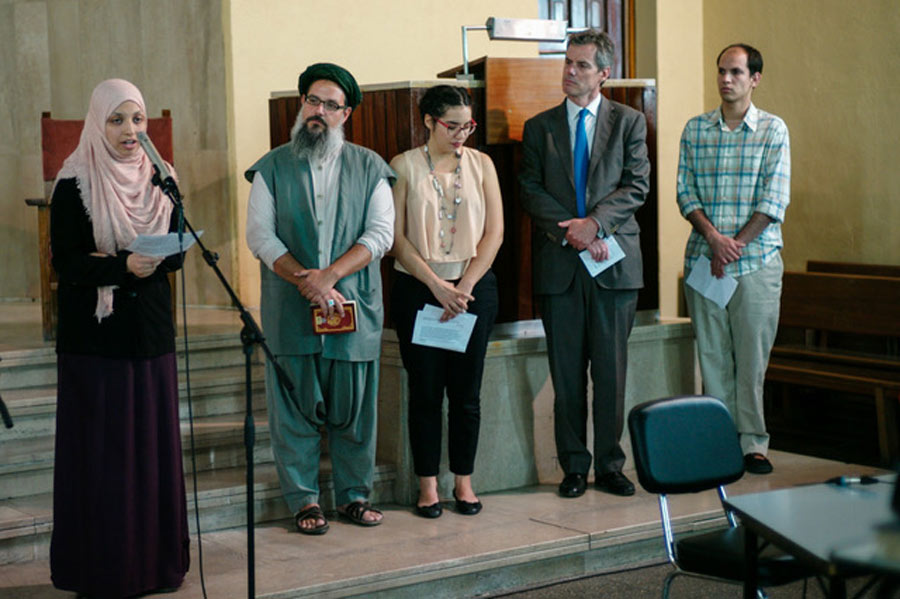
Representatives from diverse religious communities in Spain share their thoughts on the contribution of religion to the critical issue of refugees in their society.
“The purpose of this event is to underline the important role religious communities are playing in the reception and integration of refugees into their own communities and to give voice to the varied experiences and knowledge acquired through their contributions to society,” said Leila Sant Massarat, who chaired the gathering and represented the Baha’i community of Spain.
“Regardless of the language we speak, our skin tone or place of birth, we are all human beings and share the same primary identity.”
The Baha’i teachings call upon all people to recognize their common kinship in the human family:
All men are of one family; the crown of humanity rests on the head of every human being.
In the eyes of the Creator all His children are equal; His goodness is poured forth on all. He does not favour this nation nor that nation, all alike are His creatures. This being so, why should we make divisions, separating one race from another? Why should we create barriers of superstition and tradition bringing discord and hatred among the people? – Abdu’l-Baha, Paris Talks, p. 138.
The conference highlighted the efforts of various faith-based groups in Spain to play a constructive role with the rising number of refugees arriving into the country. The representative from the Sant’Egidio community, a Christian organization, described an initiative taken by his community to encourage kindness and understanding by reading the names of all the newly arrived refugees. “We can sometimes forget that refugees have an identity and a name,” he said.
Director of Public Affairs for the Baha’i community of Spain, Sergio Garcia, noted other contributions of the various faith groups in support of refugees, citing, for example, an initiative of the Muslim community to ensure that food was prepared and available for families in need and the experience of a Jewish group assisting youth in a refugee camp.
“There was a real spirit of solidarity among participants,” said Dr. Garcia. “It was striking how harmoniously these different groups consulted and operated.”
Reflecting the unified spirit that emerged from the gathering, the conference ended with a meal at dusk for everyone to share on the occasion of Ramadan.


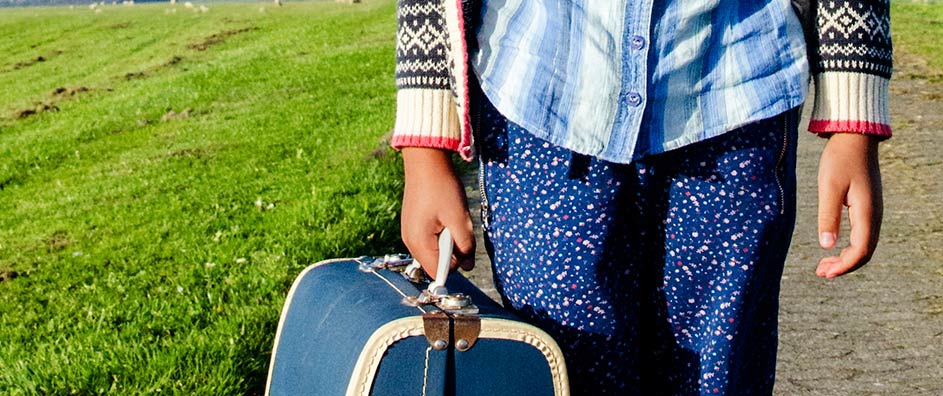

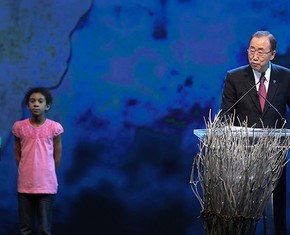

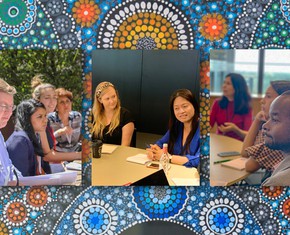









Comments
Sign in or create an account
Continue with Googleor